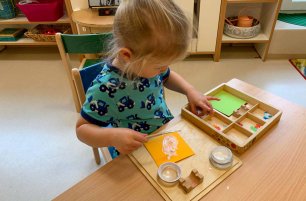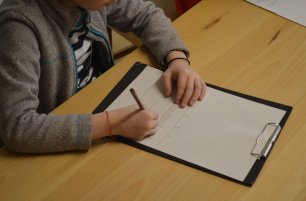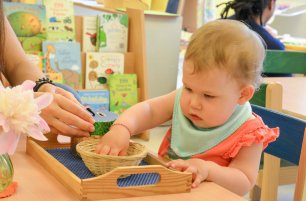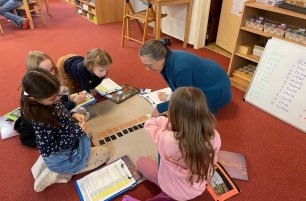Starting Preschool: How to Handle Saying Goodbyes?
Before the age of two, the child undergoes a series of developmental changes making them ready for a new social environment. Although the parents are still the most important people in their world, children now need an expansion of their social horizons: the experience of a peer group, of being socially independent. This is a big and valuable step: learning to function without the parents in a community of friends and teachers.
The child looks to you first
It is natural that at first the child might be nervous and uncertain about this change. Separation anxiety is a normal part of human development during the toddler years, when the child should experience and resolve it so as not to carry it – in a more severe form – to a later age.
More often than not, the start of preschool is harder on parents than on the child! The child has new experiences, friends and activities in the classroom; the parents usually have to return to work, and all too often they find themselves struggling with feelings of guilt, fear and hurt. If this is you, please give yourself the chance to acknowledge the challenge, the validity of your feelings, and don’t be afraid to seek support – from your partner, friends, but also from the school.
Helping Your Child Have a Positive Experience
Children are also enormously in tune with their parents’ emotions: they quickly pick up on hesitation, nervousness or stress. Because of this, they feel much better about major changes if they can see the parents are confident, relaxed and pleased by them.
In practice, this especially means projecting an air of calm and ease when dropping your child off. Don’t act upset or apologize to the child for it. Present it as a neutral fact of life: “I love you and like being with you, but now you will go to school and I will go away; I will come back later.” If a young child is very fearful, sometimes it helps to leave them an item to keep: “Here, you hold my scarf for me, and give it back when I pick you up.”
Don’t hesitate or stay longer because your child cries or is upset, don’t try to negotiate or “make it up” to them, or not leave when you said you would! All that would only confuse or upset your child. Consistency and confidence are the keys that give your child a clear message: “I know you are safe here, I trust this place, and so can you.” Establishing a consistent, predictable routine can also be helpful: a special high five, hug and kiss, whatever the child enjoys and participates in.
Avoid white lies
Some of the most common mistakes we make with children, here and elsewhere, is telling them things that simply aren’t true but that we think will placate them. “I will be back in just a few minutes” or “I am not really leaving I will just sit in the hallway.” Instead, teaching your child that they can trust your word will ultimately make them much happier than any white lie could. Likewise, don’t be tempted to leave when your child isn’t looking – the goodbye might be tearful, but it builds trust and reassurance.
Please don’t try to force a young child to shake hands, say hello, or even hug the teachers if they don’t want to – we promise we won’t be offended! If you shake our hand and say hello to us in the morning, eventually your child will be happy to mirror your actions when they’re ready.
Want to learn more? Read our next article:




